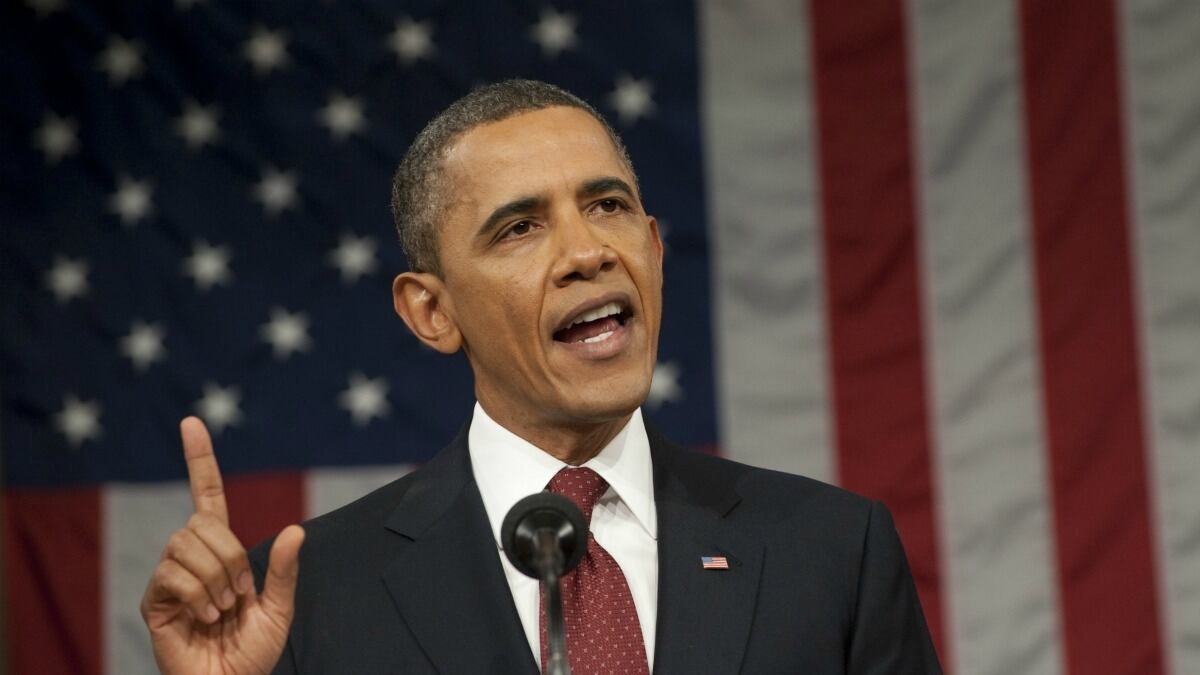
This is part of a series discussing the State of the Union. Click here to read Part 1. Click here to read Part 2. Click here to read Part 3.
My two favorite parts of the president's speech: the call for political reform and the call for mortgage relief.
My least favorite parts: the endorsement of the DREAM act, which will incentivize more illegal immigration; the call to abolish the differential between capital gains taxes and ordinary income taxes (see here and here for my reasons); and maybe worst of all, the president's very bad, no good energy policy, with its call for more direct government subsidy and support for particular technologies and firms.
This country needs an all-out, all-of-the-above strategy that develops every available source of American energy – a strategy that's cleaner, cheaper, and full of new jobs.
We have a supply of natural gas that can last America nearly one hundred years, and my Administration will take every possible action to safely develop this energy. Experts believe this will support more than 600,000 jobs by the end of the decade. And I'm requiring all companies that drill for gas on public lands to disclose the chemicals they use. America will develop this resource without putting the health and safety of our citizens at risk.
The development of natural gas will create jobs and power trucks and factories that are cleaner and cheaper, proving that we don't have to choose between our environment and our economy. And by the way, it was public research dollars, over the course of thirty years, that helped develop the technologies to extract all this natural gas out of shale rock – reminding us that Government support is critical in helping businesses get new energy ideas off the ground.
What's true for natural gas is true for clean energy. In three years, our partnership with the private sector has already positioned America to be the world's leading manufacturer of high-tech batteries. Because of federal investments, renewable energy use has nearly doubled. And thousands of Americans have jobs because of it.
When Bryan Ritterby was laid off from his job making furniture, he said he worried that at 55, no one would give him a second chance. But he found work at Energetx, a wind turbine manufacturer in Michigan. Before the recession, the factory only made luxury yachts. Today, it's hiring workers like Bryan, who said, “I'm proud to be working in the industry of the future.”
Our experience with shale gas shows us that the payoffs on these public investments don't always come right away. Some technologies don't pan out; some companies fail. But I will not walk away from the promise of clean energy. I will not walk away from workers like Bryan. I will not cede the wind or solar or battery industry to China or Germany because we refuse to make the same commitment here. We have subsidized oil companies for a century. That's long enough. It's time to end the taxpayer giveaways to an industry that's rarely been more profitable, and double-down on a clean energy industry that's never been more promising. Pass clean energy tax credits and create these jobs.
The juxtaposition of "luxury yachts" and "wind turbines" is especially cute. But look: if your factory manufactures luxury yachts that can meet the test of market competition without subsidies or tariffs - and if the switch to wind turbines occurs only because government is ordering utilities to buy wind energy at triple the market price using wind turbines that must be law be made-in-America - then better you make luxury yachts.
The insistence on treating green energy as a source of job innovation is bad for jobs and bad for energy.
I wish I could get onto the president's reading list the revisionist new history Railroaded, by Richard White.
White powerfully makes the case that the country's race to build transcontinental railroads in the 1860s and 1870s (like Canada's construction of a transcontinental railroad in the 1880s) wasted social resources while unjustly enriching private entrepreneurs who exploited subsidies and guarantees from over-eager governments. The book exposes the real-world costs of government-led industrial policy. Those costs were huge— and they cannot be rationalized with glib phrases like,
"Some technologies don't pan out; some companies fail. But I will not walk away from the promise of clean energy. "
A lot of things that look like promises turn out to be mirages - like supersonic passenger aircraft in the 1960s for example.
And even when the promise is genuine, wasting resources exacts terrible real-world costs. One of White's best points: the fact that a transcontinental railroad is a good thing to have in the 1920s does not mean that it's a good thing to build in the 1860s. It could have been built better and cheaper when it was needed, and the resources that were wasted by building it a half-century too early were denied to other social activities that could have done much more good for many more people.
So it is with wind and solar today, and the president is engaging in delusive political practice by suggesting otherwise.





